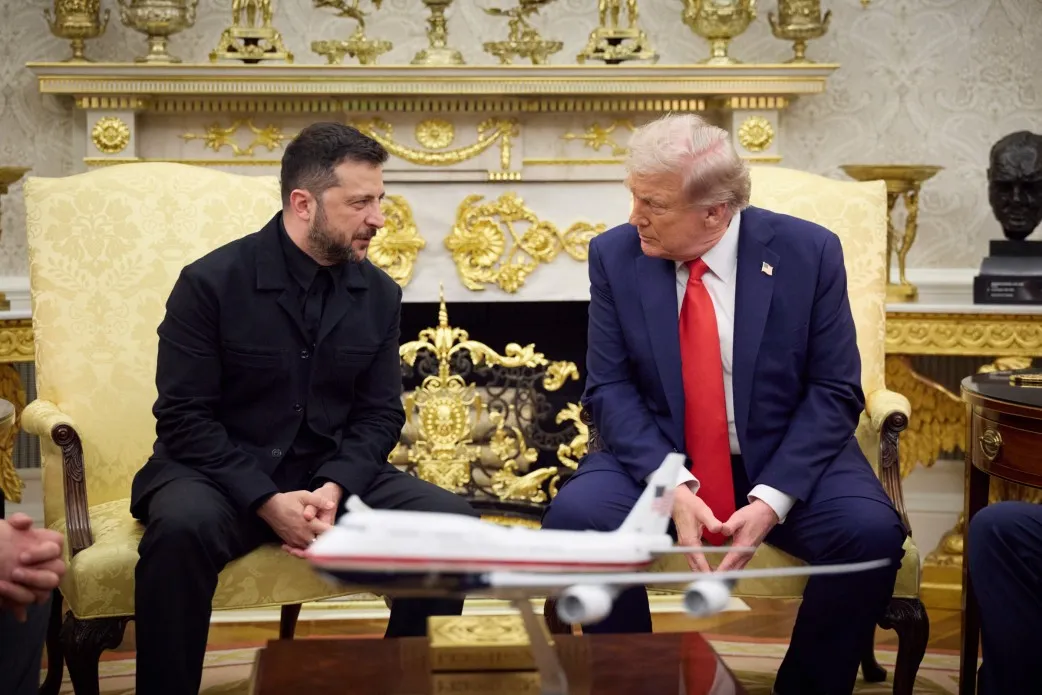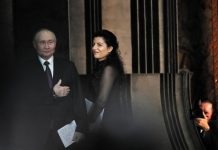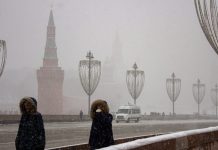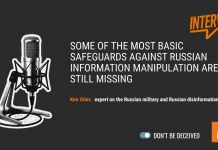Russia propagandists were in a lather of excitement during and after the Alaska summit. The mood has changed.
By Julia Davis, for CEPA
Russian state media have been fawning over Vladimir Putin since his August 15 meeting with US President Donald Trump. It was a triumph for the Russian leader, they declared. Experts queued up to detail the almost-countless victories the Russian president had scored against what they like to call the collective West.
From Moscow’s viewpoint, the die was cast, and Trump was moving towards pressure on Ukraine to capitulate — the only peaceful resolution of this war that Russian mouthpieces ever envisioned.
On August 18, the Solovyov Live channel, which bills itself as “the biggest patriotic channel in the nation,” was broadcasting Trump’s meeting with the President of Ukraine Volodymyr Zelenskyy, and European leaders at the White House. This live broadcast was presumptuously entitled: “Breaking News: Ukraine’s Capitulation.”
Host Sergey Karnaukhov excitedly followed along as events in the White House unfolded. He smirked and giggled at the European leaders, showing a fake AI-generated image of them sitting on chairs in a hallway like schoolchildren waiting their turn to see the head teacher.
After a while, it began to dawn on Karnaukhov that the much-anticipated surrender was slipping away. He bristled about the presence of the European leaders, arguing they had prevented Trump from pressuring Zelenskyy to hand over Ukrainian land and its population to Putin. Frustrated and apparently failing to realize he had already answered his own question, Karnaukhov complained, “Why did all of them have to come? For what?”
He dismissed the Ukrainian president’s peace terms as “unacceptable” to Russia and “impossible.” Karnaukhov went on: “For example, the Americans didn’t want to talk to Gaddafi.” In gory detail, he described the demise of Saddam Hussein, once again trying to draw a taunting parallel with the popularly elected Zelenskyy, whose main fault in Russian eyes is a refusal to surrender Ukraine in Russia’s imperial war of conquest.
His voice trembling with anger, Karnaukhov said, “Do Americans realize what kind of a destructive potential there is in a meeting between Putin and Zelenskyy? It has colossal potential. It would eradicate the entire era of our president’s rule, as the greatest humiliation of a country. I’m sure they understand this at the Kremlin.”
It’s worth noting that Karnaukhov’s certainty about regime thinking is well-founded. His senior editors are among those attending weekly sessions at the Kremlin, where they are directed by senior Putin aide Alexy Gromov on how to cover the news.
So when he says Putin and Zelenskyy “can’t be on the same [TV] screen,” he is very likely revealing more than he intended. Russia has no interest in a summit between the combatants, he added, “because this is a great president of a great country, who is fighting for humanitarian values, who is trying to save the planet. On the other side is the emissary of Western intelligence agencies, who would obtain a lifetime of legitimacy after this meeting.”
After the viewers’ hopes for a speedy capitulation were momentarily dashed, Karnaukhov comforted them with assertions that Trump remains on Putin’s side. Rolling up his eyes in search of an inspiration, he said: “I would very much like to believe that Trump, along with our president, is playing a bigger game. It’s possible. In this big game, you can win in a very interesting way. We can lure them into an escalation and destroy them completely, over there in Ukraine. After this, through the efforts of Russia, the United States, and a great number of countries that are on our side, we can start to pressure Europe and explain, ‘You started this. It’s your fault that this has happened.’”
Warming to the theme, he continued: “This could become a brilliant scenario of destroying democratic Europe. There will be one overthrow after another, one revolution after another. Europe will be different. All of this is totally possible.”
Karnaukhov’s guest, Trump biographer Kirill Benediktov, chimed in to agree: “This moment is potentially rich with opportunities. There weren’t that many moments like this during this century.”
On other shows, the mood was similar. Frustration over the meddling Europeans was overcome by a firm belief that Trump would force Ukraine to submit and surrender, and that the capitulation was not canceled, but merely delayed.
Meanwhile, Russia’s top propagandist, Vladimir Solovyov, was unusually subdued and refrained from sharp criticism or nuclear threats. He had just found out that during the Washington visit, the Ukrainian delegation gave a collection of Solovyov’s derogatory quotes about Trump directly to the American president.
Fearing he might undermine Russia’s lucky streak with the US leader who claims there is real “warmth” in his relationship with Putin, the loquacious Solovyov has suddenly started to watch his words.
By Julia Davis, for CEPA
Julia Davis is a columnist for The Daily Beast and the creator of the Russian Media Monitor. She is a member of the Academy of Television Arts and Sciences, the Screen Actors Guild, and Women In Film.
Europe’s Edge is CEPA’s online journal covering critical topics on the foreign policy docket across Europe and North America. All opinions expressed on Europe’s Edge are those of the author alone and may not represent those of the institutions they represent or the Center for European Policy Analysis. CEPA maintains a strict intellectual independence policy across all its projects and publications.





